European Ash Lumber
- August 3, 2023
- 0 comment
European Ash (Fraxinus excelsior) is a highly sought-after and adaptable hardwood that has earned a reputation for its remarkable strength, resilience against impact, and visually appealing characteristics. As a favored choice among woodworkers, European Ash finds extensive use in a diverse array of woodworking projects, owing to its exceptional properties.
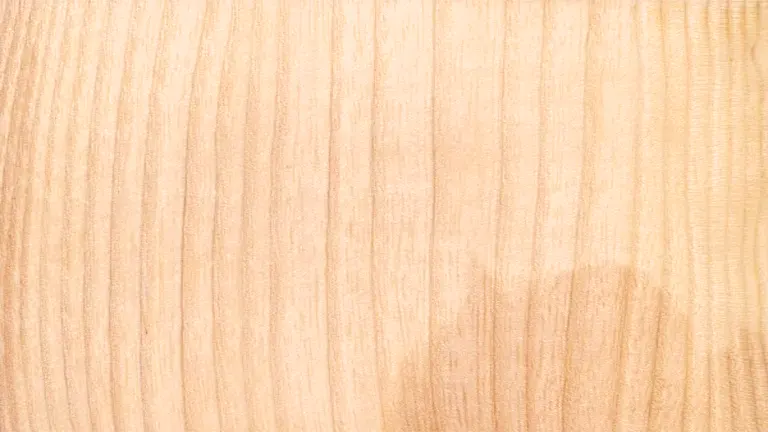
Renowned for its strength-to-weight ratio, this wood is a preferred material in crafting sturdy furniture, cabinetry, and flooring that can endure the test of time. Its ability to absorb shock makes it an ideal choice for creating sports equipment, including baseball bats, tennis racquets, and hockey sticks.
Additionally, European Ash’s alluring color spectrum, ranging from light to medium brown with occasional reddish hues, adds an elegant touch to any finished piece, further enhancing its popularity in the world of design and aesthetics. Thanks to its impressive workability, European Ash is favored by artisans and craftsmen alike for its ease of manipulation with both hand and machine tools. Its straight and even grain, coupled with a uniform coarse texture, enables smooth and precise machining, while its attractive appearance makes it a preferred choice for adding captivating visual elements to any project.
| Category | Details |
|---|---|
| Common Name(s) | European Ash, Common Ash |
| Scientific Name | Fraxinus excelsior |
| Distribution | Native to Europe |
| Tree Size | 80-100 feet tall |
| Average Dried Weight | 41 lbs/ft3 (660 kg/m3) |
| Specific Gravity | 0.66 |
| Janka Hardness | 1,320 lbf (5,880 N) |
| Modulus of Rupture | 16,400 lbf/in2 (113.1 MPa) |
| Elastic Modulus | 1,711,000 lbf/in2 (11.80 GPa) |
| Crushing Strength | 7,410 lbf/in2 (51.1 MPa) |
| Shrinkage | Radial: 4.5%, Tangential: 9.8%, Volumetric: 14.3% |
Characteristics
Color/Appearance
European Ash lumber exhibits a striking range of colors, with its heartwood ranging from light to medium brown, often adorned with darker brown streaks and the occasional reddish hue. The sapwood, in contrast, presents a pale yellow to off-white color. What adds to its allure are the distinctive figuring patterns it may display, such as bird’s eye, curly, or flame-like grain patterns, adding a touch of elegance and uniqueness to finished pieces.
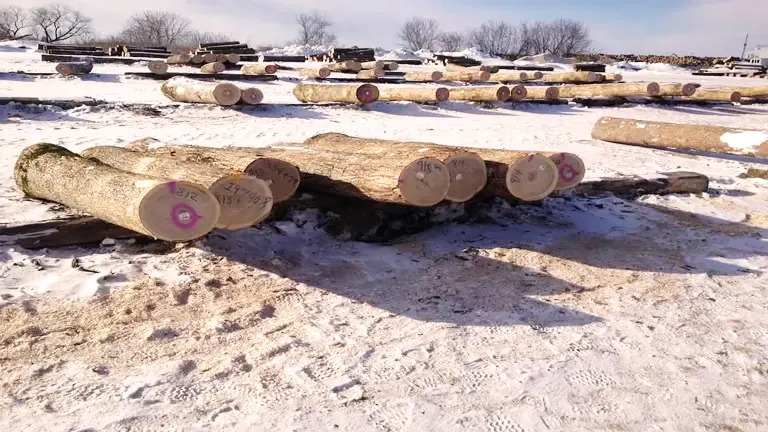
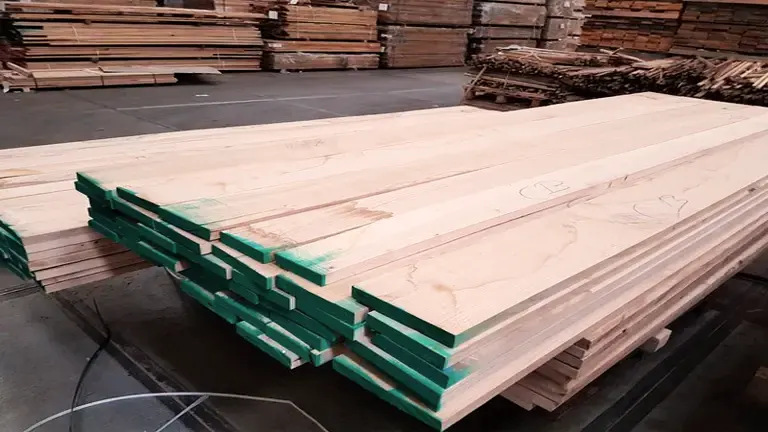
Grain/Texture
One of the hallmarks of European Ash is its straight and even grain, which adds to its appeal and ease of working. The wood has a coarse yet uniform texture, allowing for smooth finishes that enhance its aesthetic appearance. This consistency in grain and texture makes it a preferred choice for furniture and woodworking projects where a clean and refined look is desired.
Rot Resistance
European Ash showcases commendable resistance to decay, making it an ideal candidate for outdoor applications when treated properly. The wood’s natural resistance to rot enhances its longevity, particularly in damp or exposed environments, and reduces the need for constant maintenance, making it a popular choice for exterior furniture and structures.
Workability
Woodworkers appreciate European Ash for its exceptional workability. It can be easily shaped and manipulated with both hand and machine tools, making it a joy to work with during various woodworking processes. It responds well to machining, carving, sanding, and finishing, making it an excellent choice for intricate designs and detailed craftsmanship. However, it is worth noting that care should be taken during nailing or screwing, as it may have a tendency to split if not properly handled.
Odor
European Ash has no distinctive odor when freshly cut, allowing woodworkers to focus on crafting without any distracting or unpleasant scents.
Allergies/Toxicity
European Ash is generally considered safe to work with, with no known severe allergic reactions associated with the wood. However, as with any wood, some individuals may experience skin irritation or respiratory issues when handling it, so it’s advisable to take proper precautions, such as wearing protective gear, especially if sensitive to wood dust or irritants.
Pricing/Availability
European Ash is commonly found and more affordable in its native regions of Europe. However, its availability may vary in other parts of the world, potentially influencing its price in those regions.
Sustainability
European Ash faces some ecological concerns, particularly due to the threat posed by the Emerald Ash Borer beetle, which can devastate Ash populations. As a result, responsible harvesting and replanting practices are crucial to maintaining the sustainability of European Ash as a valuable and renewable resource.
Common Uses
European Ash finds versatile applications in various woodworking projects. Its excellent combination of strength and aesthetic appeal makes it a popular choice for crafting furniture, cabinets, and flooring. It is also commonly used in millwork, tool handles, sports equipment, and veneers, thanks to its favorable strength-to-weight ratio and shock resistance, making it a preferred material for these specialized applications.
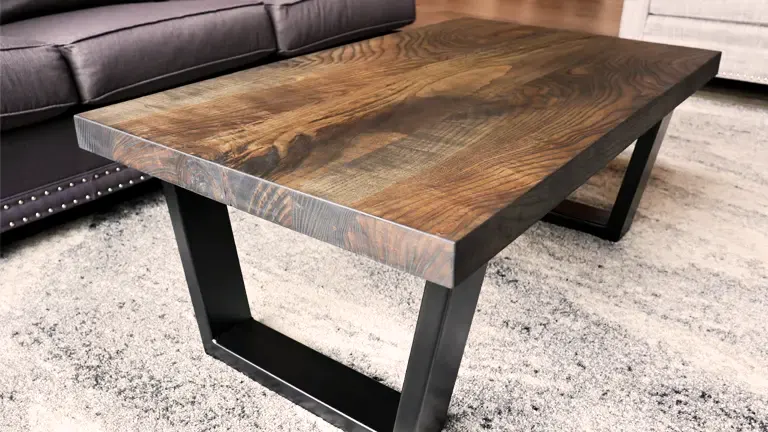
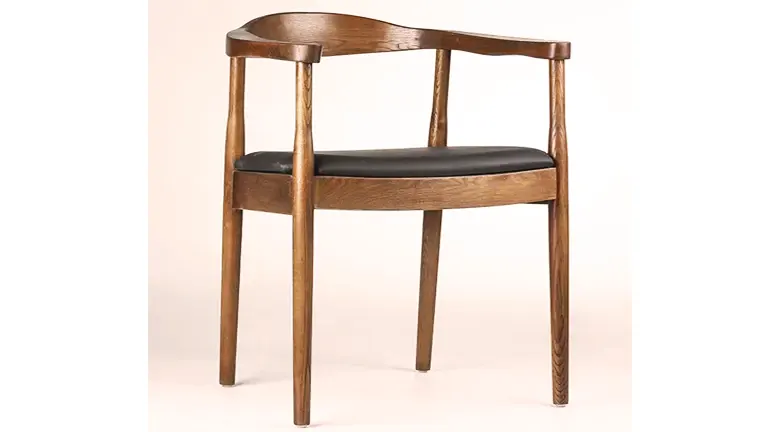
Frequently Asked Questions
- Is European Ash suitable for outdoor projects?
Yes, European Ash can be used for outdoor projects if adequately treated to enhance its rot resistance. - Does European Ash have any special woodworking characteristics?
European Ash is known for its excellent bending properties, making it popular for steam bending and forming into curved shapes. - Is European Ash endangered?
While European Ash is not critically endangered, it is considered vulnerable due to the threat of the Emerald Ash Borer beetle. - Can I use European Ash for cutting boards?
Yes, European Ash can be used for cutting boards, but it’s essential to apply a food-safe finish to protect the wood and maintain hygiene. - How does European Ash compare to American Ash?
European Ash and American Ash (White Ash and Black Ash) are closely related species, and they share similar properties. However, there might be slight differences in appearance and availability in various regions.
We’d love to hear from you! Share your personal experiences and thoughts about European Ash Lumber in the comments section below. Your insights could be incredibly valuable in assisting others to make informed decisions!


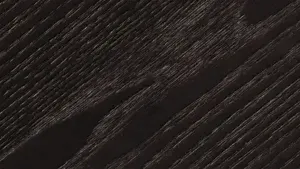
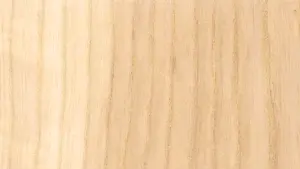





Leave your comment